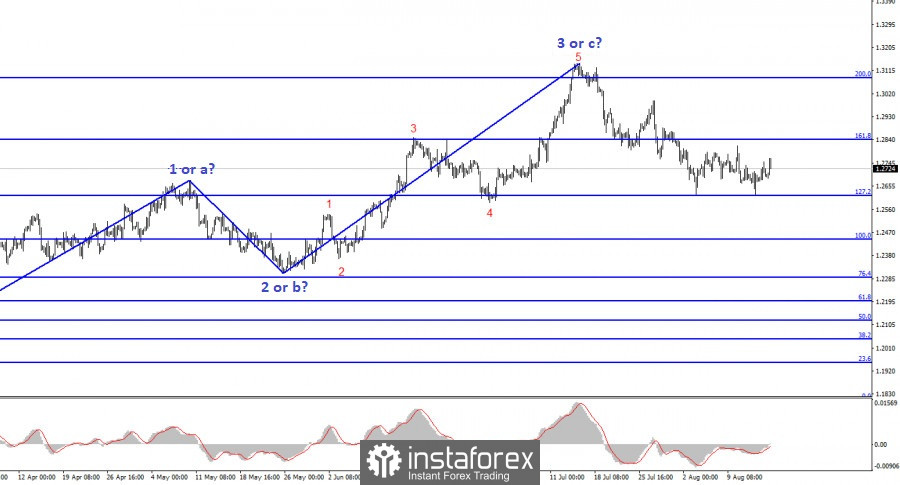At present, the European Central Bank interest rate is at 4.25%. This is the highest rate since 2003. In 2008, amid the global financial crisis, the rate also increased to 4.25%. During the same period, peak rates of the Federal Reserve and the Bank of England grew significantly higher, indicating the ECB's reluctance and unwillingness to raise rates to unprecedented levels. I don't think we will see any additional tightening of monetary policy, but the ECB rate, by all indications, still has some room to grow for a short time. But what scenario is the market pricing in?

Eurozone inflation remains high and it is clear that the rate needs to continue to rise so that the Consumer Price Index continues to slow down. However, I do not think that the ECB will follow the Fed's example and actively fight inflation until it falls below 3%. I believe that a figure around 3% will also be satisfactory for the ECB in the context of the next few years. In recent months, we have repeatedly heard statements from members of the Governing Council about a protracted struggle and low chances of returning to the target level before 2025. This means that the ECB is already mentally prepared to accept inflation above the target for the next 2.5 years. If this is the case, the rate will rise once or twice more this year.
Some ECB representatives have already stated that there may be a pause in rate hikes in the fall. A pause means that the central bank has reached the home stretch. How will this affect the euro? In my opinion, demand for it will decrease. The market now understands that tightening is coming to an end, so there are no more reasons to buy the euro. The European Union's economy is on the brink of "negative economic growth," which puts the euro at a disadvantage against the US dollar. The US economy is growing much stronger and faster, and inflation is already approaching the target. Perhaps when the FOMC starts lowering the rate, the dollar will fall further, but until that time, the instrument must also move in some way. Therefore, I advocate for its succeeding decline.
Based on the conducted analysis, I came to the conclusion that the upward wave pattern is complete. I still consider targets around 1.0500-1.0600 quite realistic, and with these targets in mind, I recommend selling the instrument. The a-b-c structure looks complete and convincing. Therefore, I advise selling the instrument with targets located around the 1.0836 mark and below. I believe that we will continue to see a bearish trend, and a successful attempt at 1.0880 will indicate the market's readiness for new short positions.

The wave pattern of the GBP/USD pair suggests a decline. You could have opened short positions a few weeks ago, as I advised, and now traders can close them. The pair has reached the 1.2620 mark. There's a possibility that the current downward wave could end if it is wave d. In this case, wave 5 could start from the current levels. However, in my opinion, we are currently witnessing the construction of a corrective wave within a new bearish trend segment. If that's the case, the instrument will not rise further above the 1.2840 mark, and then the construction of a new downward wave will begin.
 English
English 
 Русский
Русский Bahasa Indonesia
Bahasa Indonesia Bahasa Malay
Bahasa Malay ไทย
ไทย Español
Español Deutsch
Deutsch Български
Български Français
Français Tiếng Việt
Tiếng Việt 中文
中文 বাংলা
বাংলা हिन्दी
हिन्दी Čeština
Čeština Українська
Українська Română
Română

